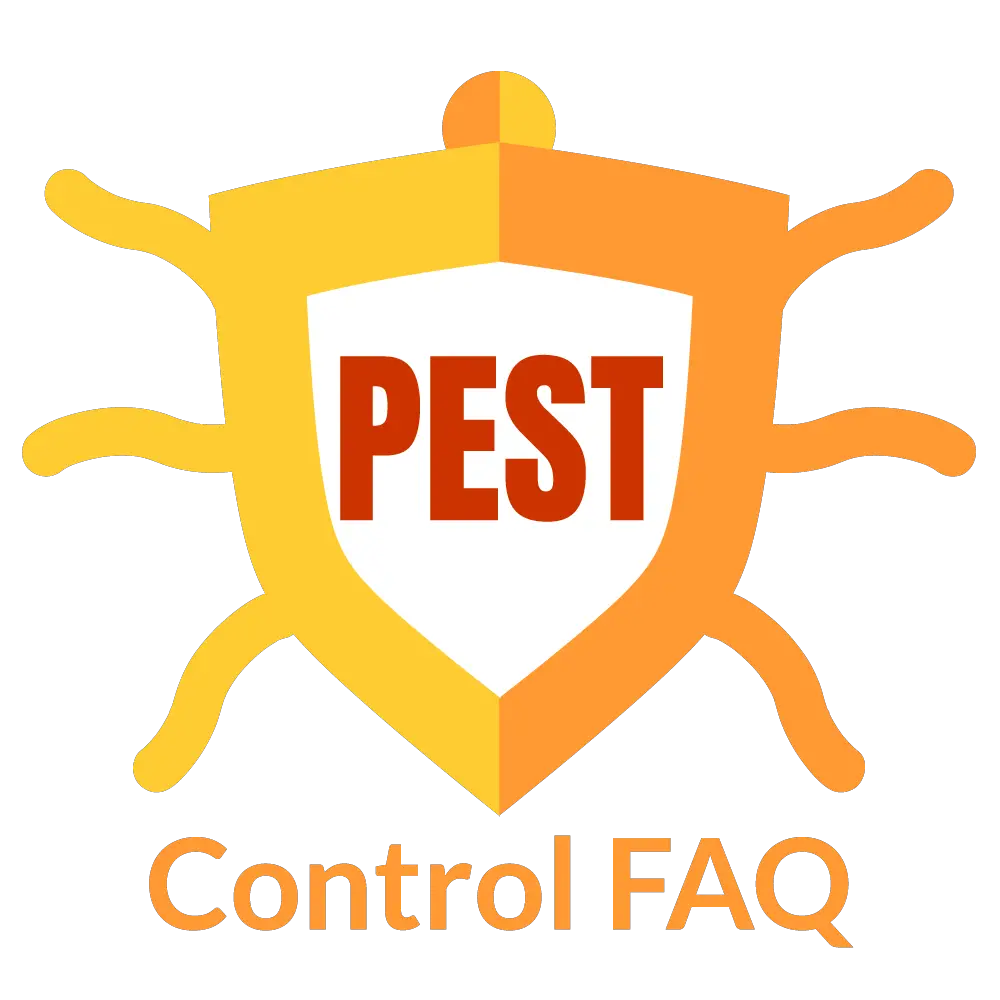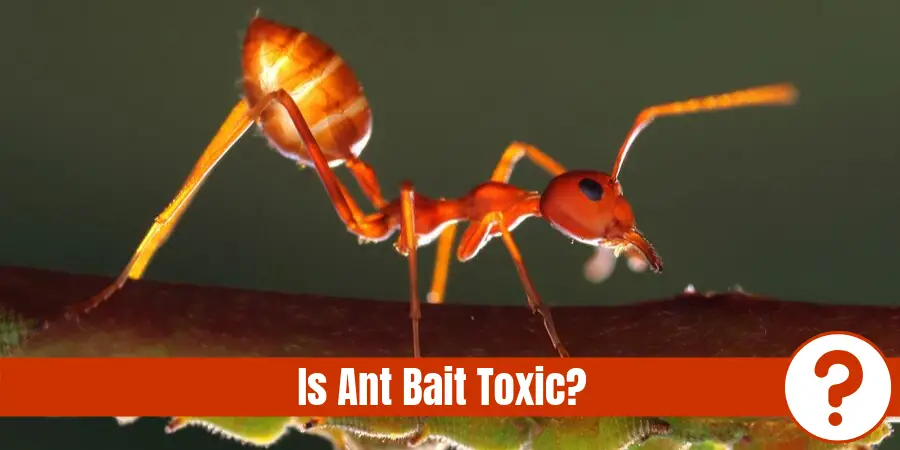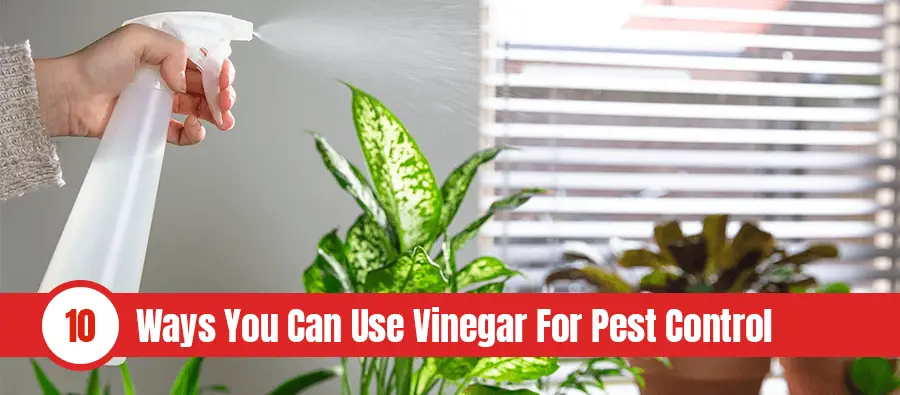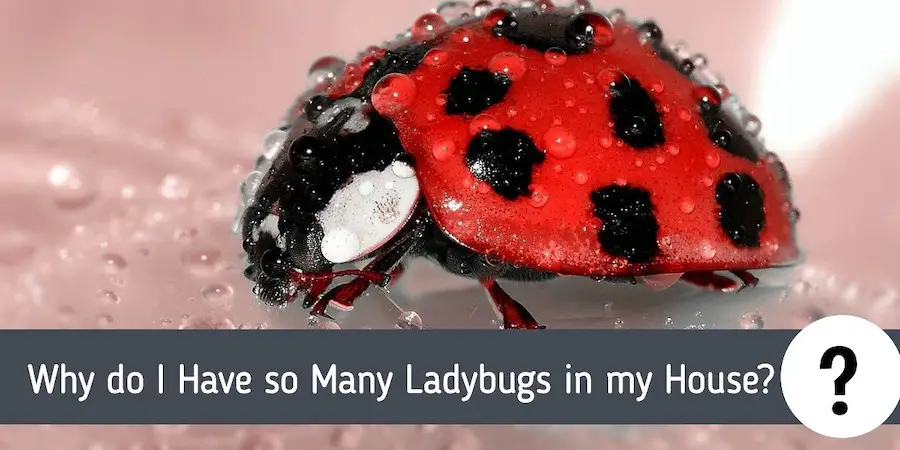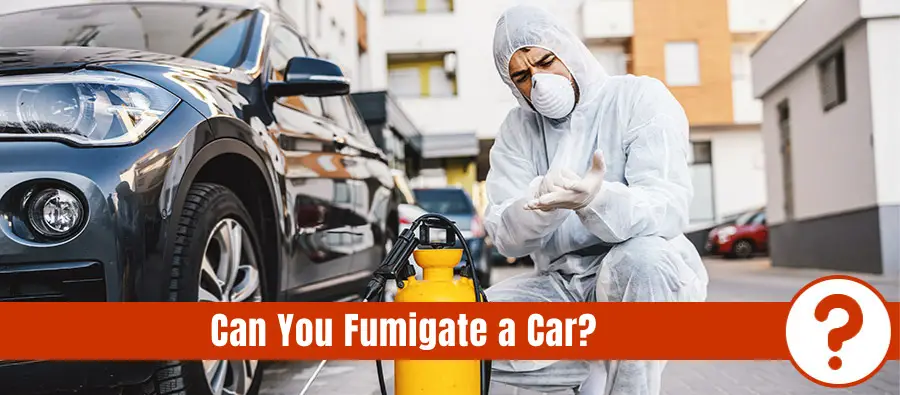Ever wondered why dealing with ant bait is somehow worse than dealing with the ants? Me, too! When I noticed that I had a small ant problem in my house, I decided to take care of it myself. Before I bought anything, I wanted to be sure if ant bait was toxic or not so everyone in my house would be safe. Here’s some helpful info I found.
So, is ant bait toxic? In general, the chemicals used in ant bait is not toxic for humans, but this question is a bit complicated since there are many different active ingredients that could be in an ant bait depending on the brand.
| Name | Used For | Toxicity Level for Humans |
| Boric acid or other borates | fire ants | Low |
| Insect growth regulators: Methoprene and Pyriproxyfen | fire ants | Low |
| Hydramethylnon | Argentine ants, carpenter ants, and fire ants, among others | Low |
| Neonicotinoid: Imidacloprid, Clothianidin, Acetamiprid, and Thiamethoxam | Argentine ants and carpenter ants, among others | Moderate |
| Avermectin | fire ants, Argentine ants, and carpenter ants | Low |
| Fipronil | fire ants, Argentine ants, and carpenter ants, among others | Moderate |
| Metaflumizone | fire ants | Low |
| (S)-Indoxacarb | fire ants | Low |
| Fenoxycarb | fire ants | Low |
According to the Pesticide Research Institute, there are nine different active ingredients that could be used in an over the counter ant bait. They all vary in ways that they are used, how they attract and exterminate the ants, and level of toxicity. Some are highly toxic to plants or aquatic life, but they all have a low toxicity level to humans.
While the active ingredients in ant bait are generally on the lower side when it comes to toxicity, there are ways that they can become more toxic if you are not careful. I’ll tell you about it below.
want to Skip All the Research? Then Hire a Decent Exterminator In your Area!
Check out our exterminator search tool where you will receive free quotes from thoroughly vetted exterminators in your local area!
Table of Contents
Is Ant Bait Harmful to Humans?
Like I mentioned above, the active ingredients in ant bait are generally not toxic to humans. However, there are some ways that these typically safe products can be used to make them unsafe. Whenever buying ant bait, it is a good rule of thumb to read everything on the box and the label even if it seems redundant or repeating.
Fipronil
Fipronil is one of the only two active ingredients in ant bait that is listed as moderately toxic to humans. Just like the rest of the active ingredients, if you use this properly, read all the labels, and understand all of the warnings then you can safely use this in your home.
However, the reason it is considered moderately toxic to humans is because of its official listing as a possible carcinogen by the United States Environmental Protection Agency.
Since Fipronil is not substantially absorbed through the skin, handling this chemical is typically safe. Some people may develop a mild skin irritation. If you notice a rash or any other skin abnormality, you should contact a doctor.
The extreme dangers of this active ingredient come if it is digested. I found that if Fipronil is ingested it can cause sweating, nausea, vomiting, headaches, stomach pain, dizziness, weakness, and even seizures. This chemical is toxic to the human nervous system, so make sure it does not get into the hands of a child.
Neonicotinoids
Neonicotinoids are a group of chemicals that have also been listed as moderately toxic to humans. Imidacloprid, Clothianidin, Acetamiprid, and Thiamethoxam are all neonicotinoids that can be found in ant bait.
According to Science Daily in spring of 2018, Neonicotinoids are currently the most widely used pesticides in the world. Since this group of chemicals is so commonly used, there is a good amount of research on its harmfulness to humans.
In general, if used properly, these chemical are not very dangerous to humans. In rare cases, they can be a bit more dangerous than other ant bait chemicals. Neonicotinoids are absorbed through the skin to some extent, so wear gloves if you notice that your ant bait has any of these chemicals.
Just like Fipronil, Neonicotinoids are toxic to the nervous system and can cause similar reactions, if digested, such as sweating, nausea, vomiting, headaches, stomach pain, dizziness, weakness, and other things. Be very careful when using this in your home and keep it out of the hands of children.
Fenoxycarb
Though Fenoxycarb has been listed as an acutely toxic chemical to humans, the United States Environmental Protection Agency classified it as a probable carcinogen. While both terms possible carcinogen and probable carcinogen mean that research cannot conclusively prove whether it causes cancer or not, it is still a safe bet to watch out for it.
According to the U.S National Library of Medicine’s PubChem forum, Fenoxycarb has been shown to have side effects in adults who have has accidental overexposure of the chemical. These effects are:
- shortness of breath
- wheezing
- tightness in chest
- irritation to the eyes
- irritation of the throat
- allergic skin reactions
- nausea
- headache
- tingling in hands
- hand tremor
This active ingredient also has some side effects that are specific to children so, again, be very careful when using this in a household especially if you have young children. The effects to look out for in children are:
- Fever
- body rash
- swollen eyes
- swollen feet
- swollen forehead
Since this chemical has shown some possible skin irritations, it is safe to assume that it can be absorbed through the skin. So, be sure to wear protective gloves when handling this chemical.
Reproductive Dangers
Some of the common active ingredients in ant bait have been proven to cause a reduced sperm count, interference with reproduction, and abnormalities in the development of a fetus. I know that these side effects sound scary, but they only occur in prolonged ingestion.
The active ingredients that have these side effects as a possibility are Hydramethylnon, Metaflumizone, Boric acid or other borates, Neonicotinoids, and Avermectin. If you are pregnant or trying to have a child, and you accidentally digest any of these chemicals, see your doctor immediately.
Is Ant Bait Harmful to Pets?
Along with all of my friends and family that come to my house to visit, I also have a dog, and very often pet sit for friends. So, before I picked an ant bait for my house, I made sure to research what was harmful to pets as well.
Many ant baits contain an attractant so that the ants will be drawn to the bait. This poses a real problem to pet owners since small animals will likely be attracted to those same things.
While the different active ingredients have many different side effects in humans, the effects that it has on animals are all generally the same and not good. Most of these ingredients are not harmful in small doses and will cause problems like diarrhea or vomiting, which will pass after the chemical is out of there system.
However, with all of these active ingredients, prolonged digestion will lead to severe problems like:
- Damage to the liver
- Damage to the thyroid
- Tumors of the liver
- Tumors of the lung
- Tumors of the eye
- Digestive issues
- Ataxia
- Tremors
- Seizures
Most of the listed active ingredients like boric acid, Methoprene, Pyriproxyfen, Hydramethylnon, Avermectin, Fipronil, Metaflumizone, or (S)-Indoxacarb will cause small issues and irritations that will be easy for the owner to notice. These side effects will be things like skin irritation, eye irritation, diarrhea, vomiting, or noticeable lethargic behavior.
The active ingredient that a pet owner should most lookout for is Fenoxycarb. The effects of Fenoxycarb generally do not start to show until it is too late. Tumors and damage to major organs were shown in animal tests after prolonged ingestion but, no physical reaction was seen. So, essentially, your pet could be eating Fenoxycarb for a while before you notice its effects.
Another thing to be careful about when having ant bait in your home is the plastic container that it comes in. If your pet eats the plastic container, they will suffer very serious digestive problems.
In general, just be sure to pick up all ant baits as soon as you are done with them.
